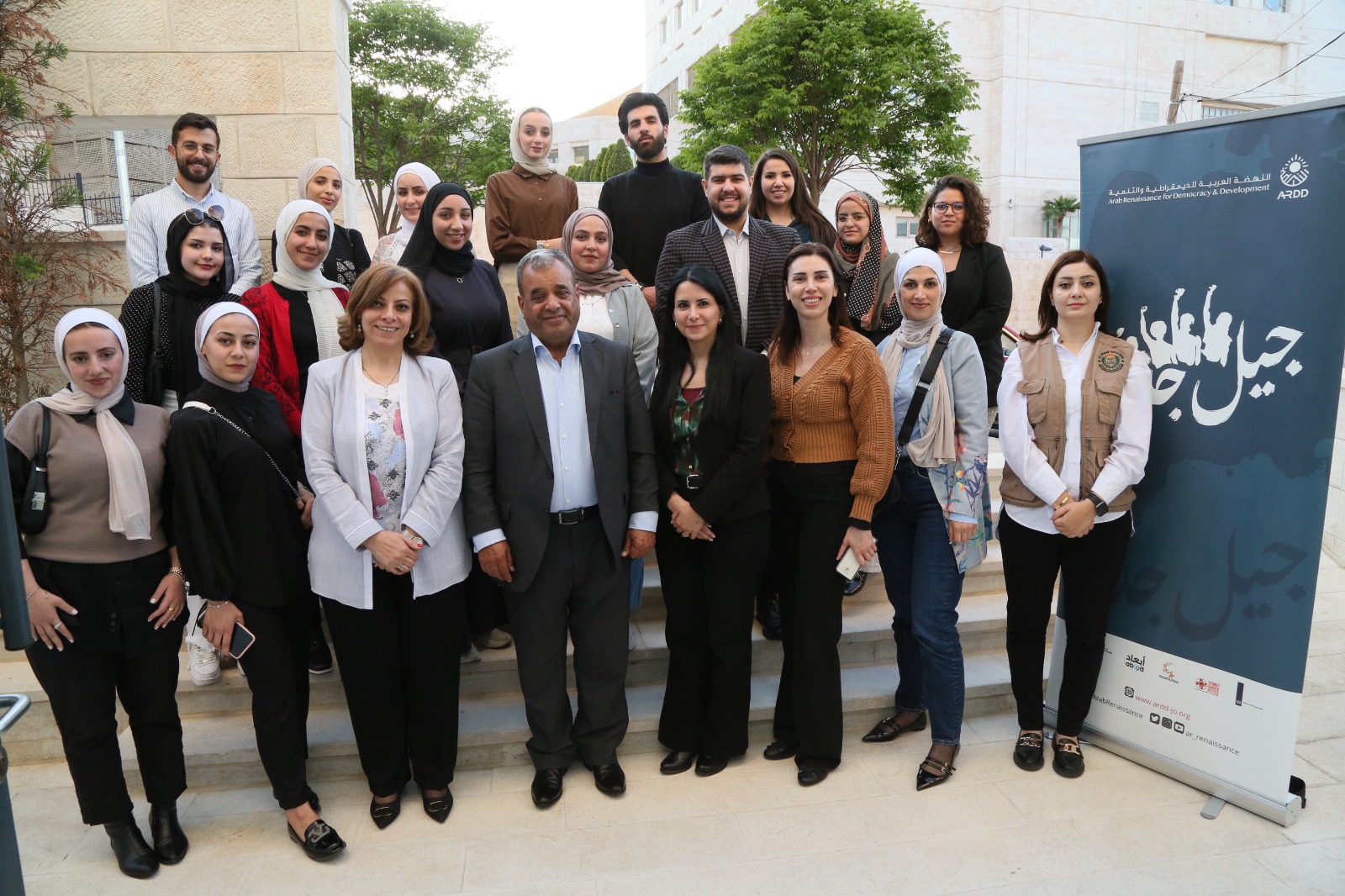Recognizing the specific ways and dynamics of building the individual’s social capital is critical to understanding ways to support it and develop it, as expanding and strengthening youth and women’s networks can help to have easier and more consistent access to civic and political spaces, in order to achieve their aspirations and needs and reach their goals.
From this standpoint, the Arab Renaissance for Democracy and Development (ARDD), within the framework of the second phase of the Youth Participation Policy Lab series, held a policy session entitled: “Social Capital: Exploring Ways to Develop the Social Capital of Youth”, on Monday, April 15, 2024, which featured a speech by parliamentary and party activist Younis Zahran, and was moderated by ARDD’s CEO Samar Muhareb, who stressed that the concept of social capital depends on the strength of interdependence and trust between members of society and their civil and political interaction with institutions, parties, and associations, indicating that the situation in Jordan faces challenges in forming real social capital, and that women, girls, and people with disabilities in particular are faced by many obstacles in this field.
The policy lab implemented by ARDD, in cooperation with the Center for Strategic Studies at the University of Jordan, comes within the New Generation Project; with the aim of enhancing the concepts of civic and political participation among students of the faculties of political science and law at the University of Jordan, providing them with practical experience that helps expand the horizons of their work in the future, and introducing them to experts and institutions specialized in this field, as well as helping them to communicate their voices to formulate policies and communicate positively and effectively with decision makers.
During their discussions, the youth explained that there are many factors that contribute to achieving social capital and the success thereof, including social intelligence among individuals, continuity of civil work, sustaining interest, punctuality, credibility and cooperation, influencing others, positivity, as well as building good reputation and overlooking lapses.
Regarding his explanation of social capital, activist Zahran explained that social capital in Jordan is no less important than human and financial capital, and that one of the issues of concern today is its decline and collision with many determinants and circumstances, such as: “high unemployment rates, poverty, social injustice, weak communication skills among young people and weak networking between them and others, prevailing social and cultural standards in society, crises and wars, among others.”
Zahran also saw that the concept of capital was limited in its beginnings to economic affairs, but in recent decades scholars have paid attention to other concepts of capital, including social, cultural, and cognitive capital, stressing that capital is power if people want to move forward and advance in society.
In a comparison between the practice of social work in the West and the Arab region, Zahran said that individuals in the West practice social work by choice, because of the existence of the values of justice, equality, and equity in their societies. As for Arabs, social work stems from the idea of duty, because we lack the sense of belonging and active participation.
The youth learned about Zahran’s social experience, which he had gained over the course of many years of his political and civic activism, considering that the most important sources of social capital are “how to obtain information, provide assistance, enhance the confidence of individuals and their sense of belonging to groups and bodies, while stressing that the relations and interactions constituting this concept are the main motivation for the process of development and change in societies.
In conclusion, young people stressed the need to fight social loafing and prepare ourselves to be active in civil and political life, noting that “wasta” is not always a negative thing and may be positive if used in healthy and objective ways. They explained that in some cases and to facilitate forming social capital, this resulted in competition between people, calling for investment in youth potential by empowering them with a common vision and providing the necessary space for youth gatherings that enhance the strength and cohesion of Arab youth and their adherence to their Arab identity.



